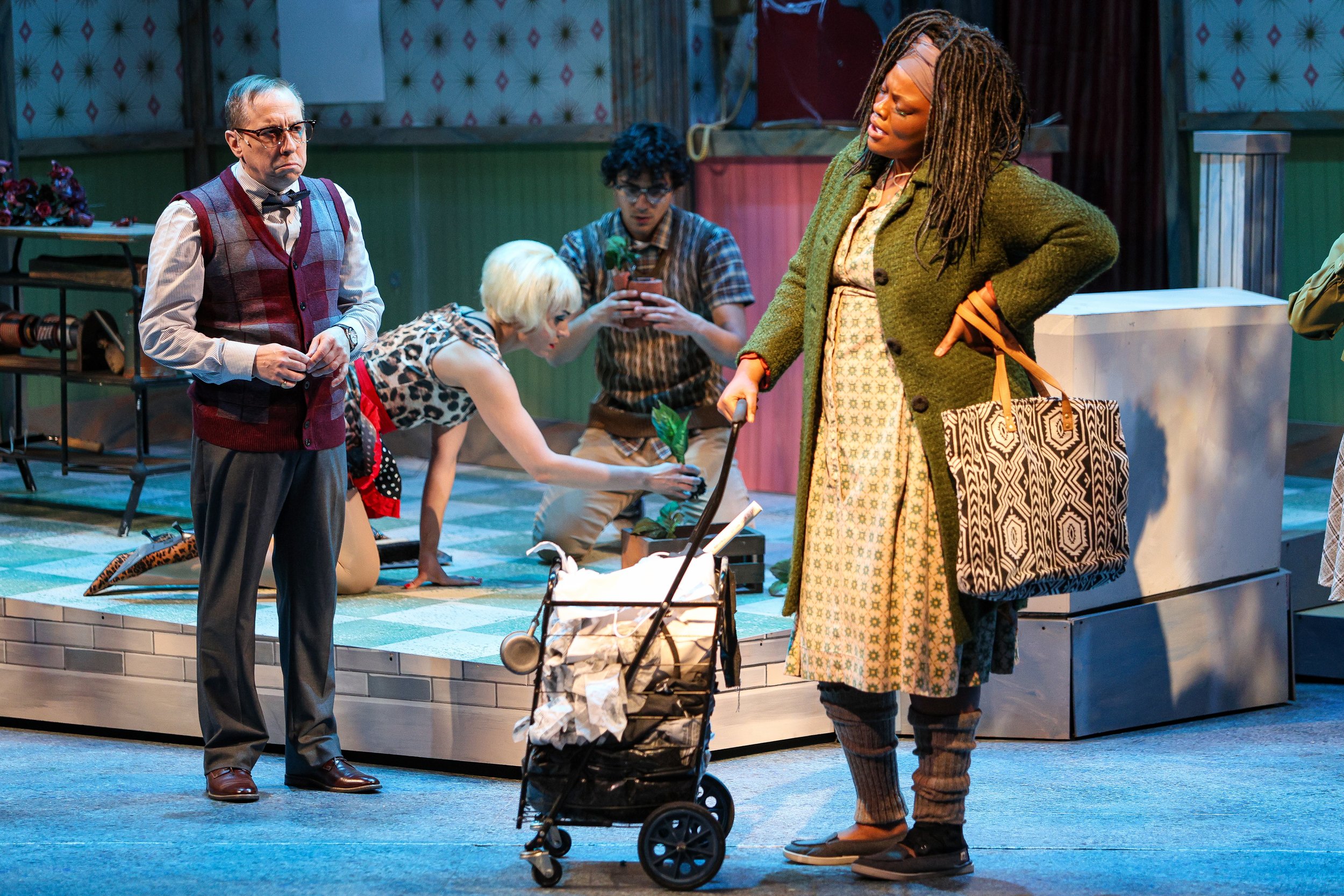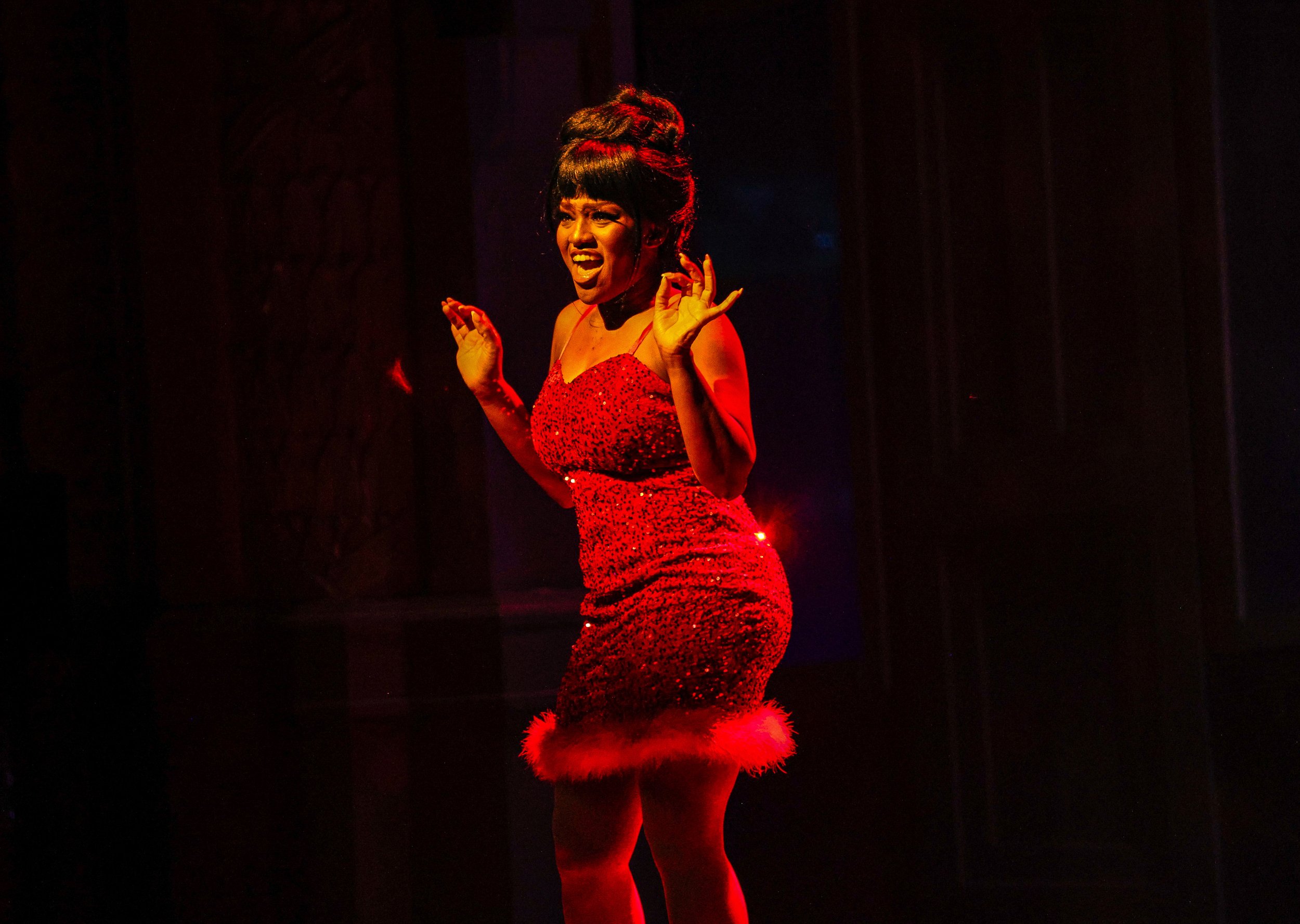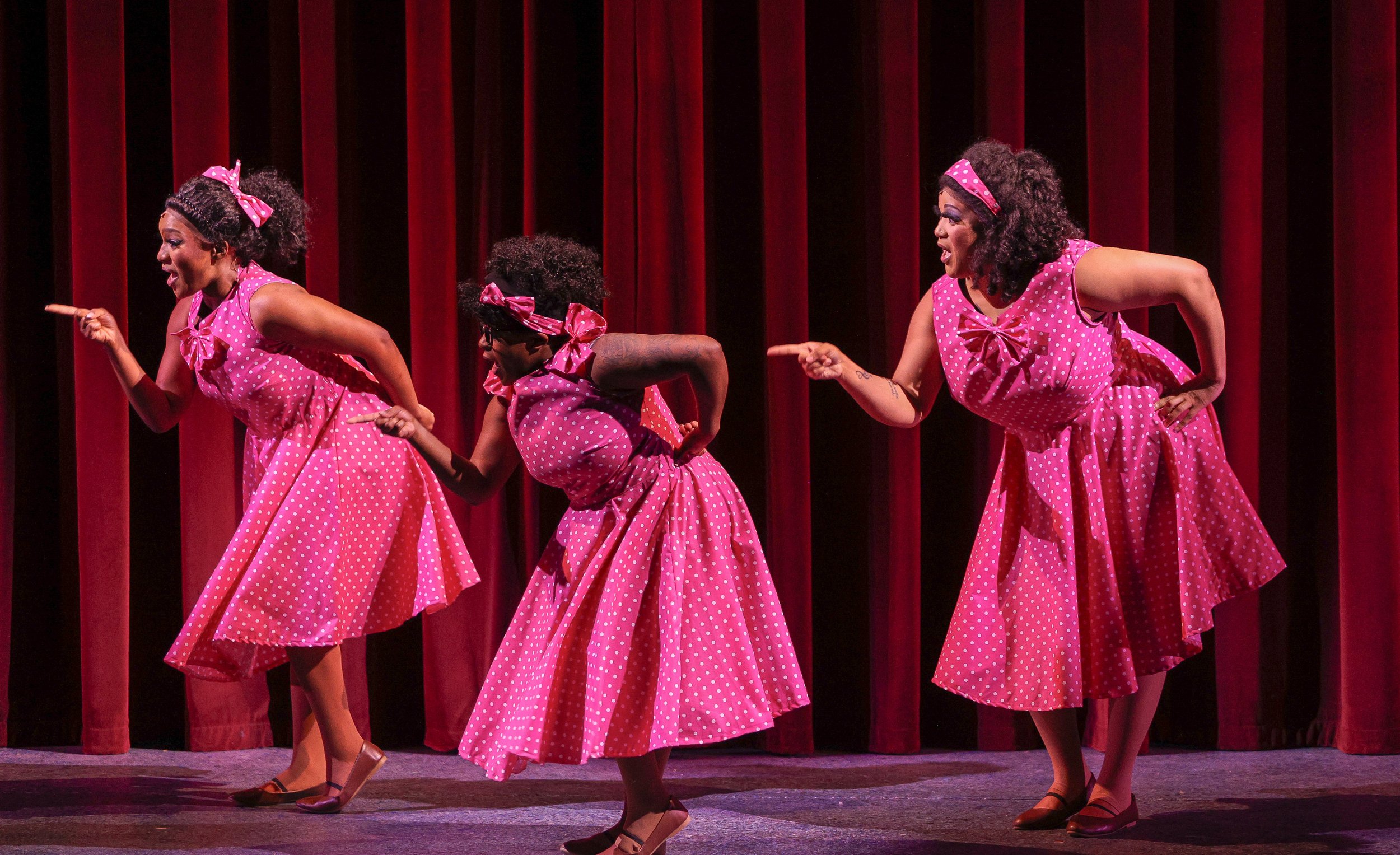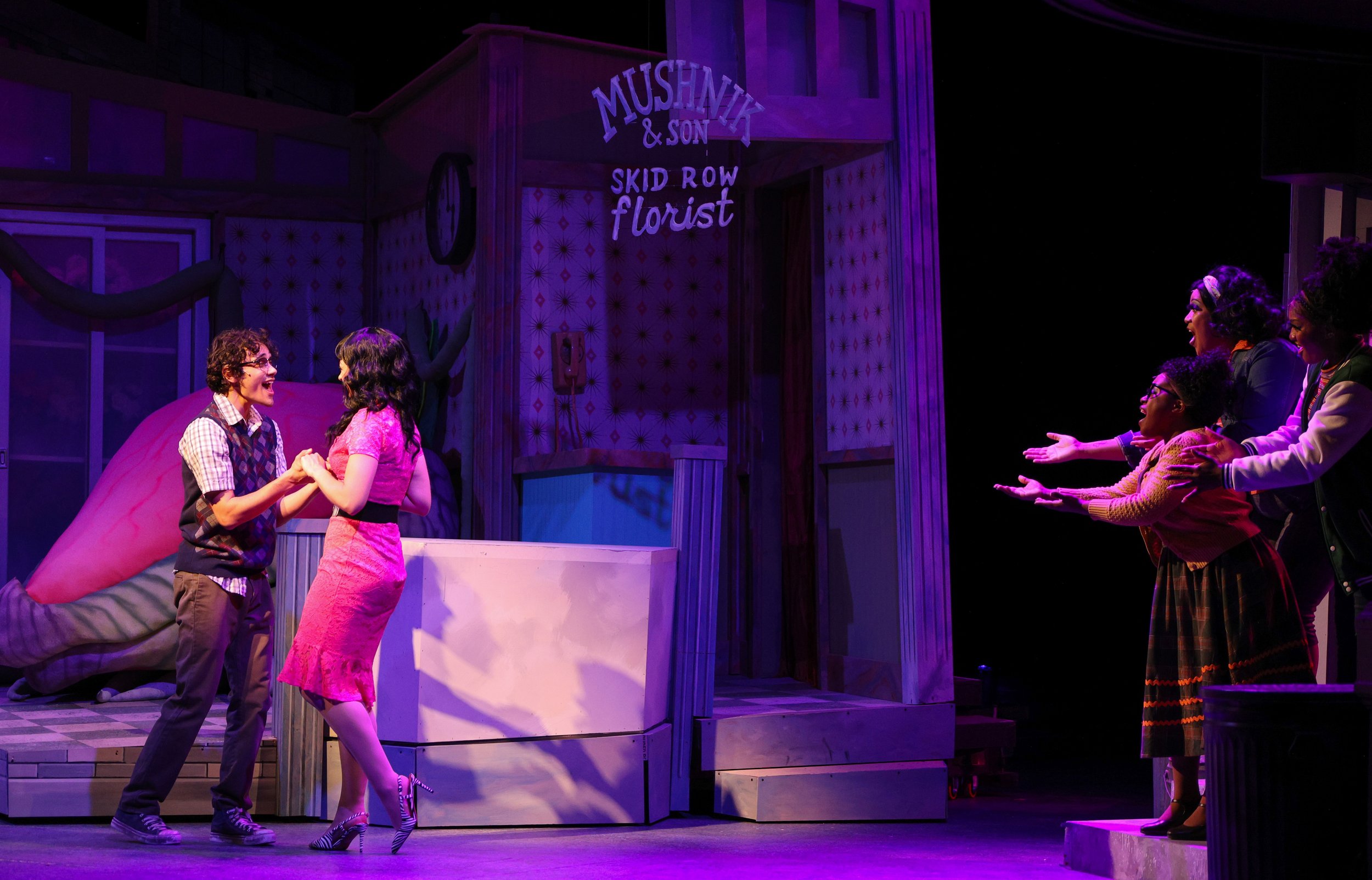VEER: Come Together Over Little Shop of Horrors
Diving Deeper | LITTLE SHOP OF HORRORS: Science Fiction, Satire, and the Cult of the Killer Plant
LITTLE SHOP OF HORRORS | Cast & Creatives
Diving Deeper | Broadway Musicals: A Jewish Legacy
Post-Show Talkback: Shaping the Sound of Broadway
Diving Deeper | How LITTLE SHOP OF HORRORS Shaped Disney’s Renaissance
Little Shop of Horrors remains a global phenomenon, largely propelled by the success of the 1986 film directed by Frank Oz. The musical continues to thrive in its current Off-Broadway revival. Its triumph led producer David Geffen to introduce songwriting duo Howard Ashman and Alan Menken to Disney executives, paving the way for their pivotal role in the Disney Renaissance.






























